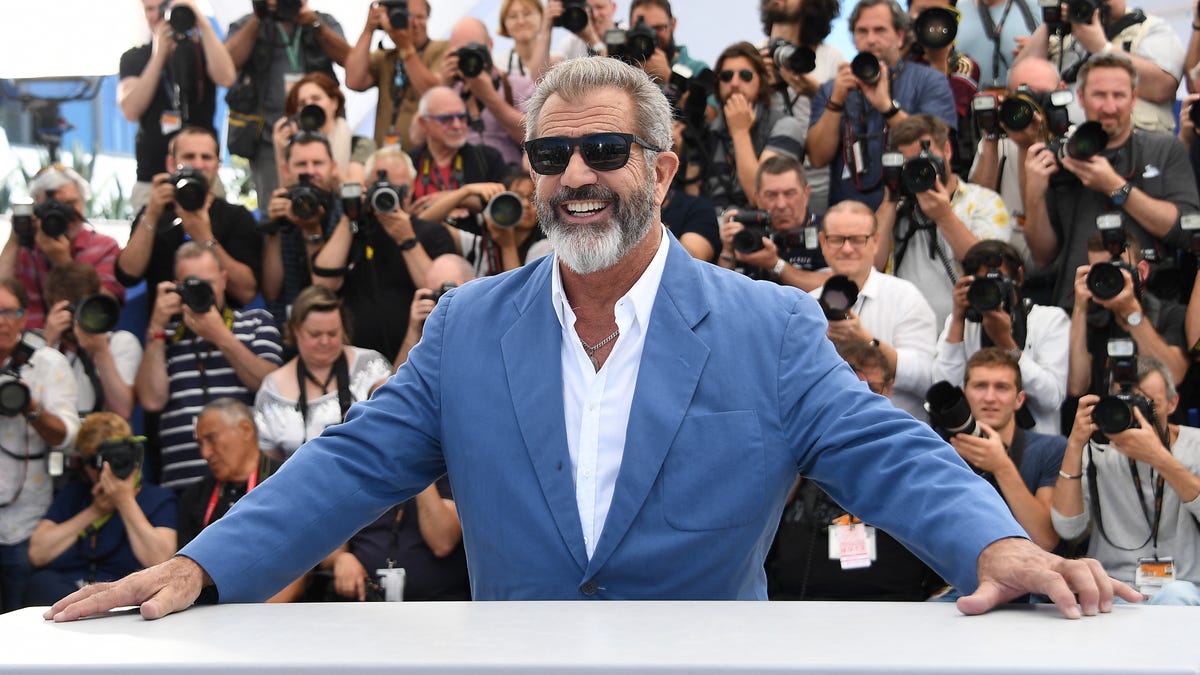DOJ official fired over Mel Gibson’s gun rights
Justice Department lawyer Elizabeth G. Oyer was fired after she refused to add Mel Gibson to a list of individuals considered for the restoration of their gun rights.
unbranded – Entertainment
Actor Mel Gibson has his firearms rights back along with nine others, including a former NFL player, who petitioned the government for pardons for their decades-old crimes.
The issue became a flashpoint for the Justice Department in March, when Pardon Attorney Liz Oyer refused to add Gibson to a pilot program that had whittled a list of 95 non-violent offenders down to nine who had passed rigorous FBI background checks.
“I had been asked to recommend restoring the firearm rights of a famous friend of the President who had lost his right to own a gun due to a domestic violence conviction, ” Oyer testified to Congress April 7. “I declined to do so based on concerns about public safety.”
That “famous friend” was Gibson, who was prohibited from purchasing guns due to his 2011 misdemeanor domestic violence conviction. His attorney drafted a letter to DOJ leaders during the Trump presidential transition appealing for a restoration of rights. The letter argued for the attorney general to reassert authority it had delegated to the Bureau of Alcohol, Tobacco and Firearms and Explosives that had gone unused since 1992.
In January, Trump named Gibson a “special ambassador” to Hollywood alongside fellow conservative actors Jon Voight and Sylvester Stallone.
Oyer was fired March 7 and met by security guards with a firing memo signed by Deputy Attorney General Todd Blanche. She was given no official reason for her termination, she says. She has appealed the firing.
She testified that the Trump administration redirected her office to consider restoring gun rights to a set of people who lost them due to criminal convictions. They established a list of 95 potential people to restore and other leaders worked that figure down to just nine, before Gibson was added.
On April 29, the other nine names became public. They represent a swath of decades old non-violent crime, but also the NFL Hall of Fame Jets defensive tackle Joseph Klecko. They are all white, mostly retired, with no documented ties to government or the Trump administration. Each made a mention of restoring gun rights as part of their petition for a pardon.
DOJ officials have not detailed how the decisions were made. The restoration notices say Attorney General Pam Bondi “established to her satisfaction that each individual will not be likely to act in a manner dangerous to public safety and that the granting of the relief to each individual would not be contrary to the public interest.”
The full list, published in the Federal Register:
• Judy Broach
• Danny Preston Conrad
• Timothy Lyn Dunham
• Mel Gibson
• Jessica Lynn Jacobson
• Joseph Klecko
• Wayne L. Mertz
• Charles E. Moehring, Jr.
• Patrick Lynn Morgan
• Ronald Joseph Willkomm
Klecko, now 71, was sentenced to three months in prison for lying to a federal grand jury about insurance fraud in 1993. He was part of Jets’ famed “New York Sack Exchange” in the early 1980s. He was inducted into the Pro Football Hall of Fame in 2023. His son, Dan Klecko, is a three time Super Bowl winner.
Klecko did not return messages seeking comment.
The list includes former Iowa banker Charles E. Moehring, Jr. who faced a felony in 1999 for falsifying the bank’s board of directors meetings and filing inaccurate call reports.
Moehring, who now lives in Wisconsin, said he received news at the end of the Biden administration that his application for a pardon was officially declined.
Then, weeks later he received a call from the Trump administration DOJ that a new pilot program was underway to restore some of his rights, including to own a gun.
Moehring, 74, said he had not heard of the controversy with the pardon attorney — or that his name appeared alongside the famous Braveheart actor, “I’ll be darned,” he told USA TODAY.
He said he didn’t necessarily plan to immediately purchase a firearm.
“At this point, I don’t know that I will. It’s been 20-some years since I’ve been hunting,” Moehring said. “I guess I wanted to have the opportunity to teach my grandkids how to properly carry firearms.”
Ron Willkomm, 65, of Georgia said his non-violent crimes dated to the late 1990s, but that he now intended to use his restored rights to go rabbit and deer hunting.
A representative for Mel Gibson declined to answer questions about the gun rights process.
Second Amendment advocates seized on the announcement in April of the restoration of rights.
Stephen Stamboulieh, a Mississippi-based Second Amendment attorney, immediately worked with a gun blogger to file requests with the DOJ to reveal how the department came to the conclusion to restore the rights.
“This is a really big deal,” Stamboulieh said. “They haven’t issued any guidelines on how to apply. All we’re going off of is the list of nine people. We don’t know what they were convicted for or when.”
Gun safety groups have blanched at the prospect of giving back rights to those who have lost them.
“It’s going to open the floodgates,” said Kris Brown, president of the gun violence prevention group Brady. “It’s deeply troubling when you consider who’s right we’re violating. The victims of these abusive relationships have the fundamental right to safety and to be able to sleep at night.”
